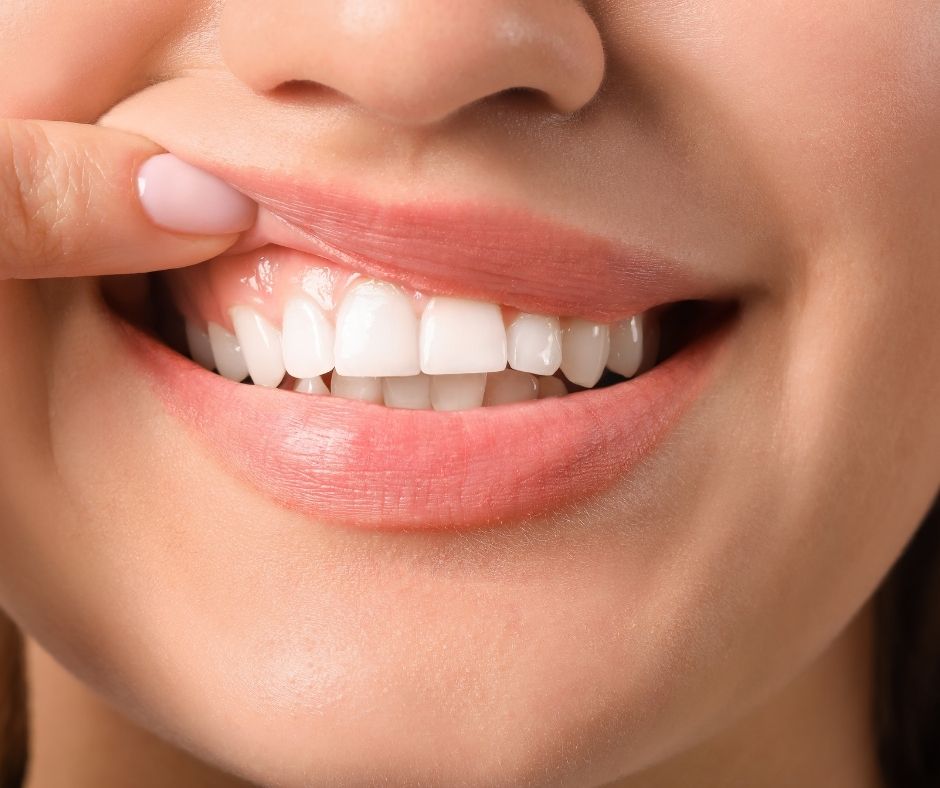Keeping An Eye On Your Gums

Gum disease can sneak up on you if you don’t know what to look for.
It starts out in a mild form called gingivitis, which rarely causes pain, so you’ll probably see the signs before you feel anything unusual about your gums. You might notice:
▪red, swollen gums or
▪bleeding after you brush or clean between your teeth.
A professional cleaning is key to tackling gingivitis. After that, you’ll need to do your part:
▪Brush your teeth for 2 minutes twice a day.
▪Clean between your teeth with floss or another interdental cleaner once a day.
You also should talk to your dentist about products with the ADA Seal of Acceptance that prevent and reduce the germs that cause gum disease.
Gum Disease Gets Serious
Gingivitis can progress into periodontitis, which is more serious. Periodontitis affects your gums and breaks down the bone and other tissues that hold your teeth in place. Periodontitis can cause tooth loss. The following are some signs of periodontitis:
▪receding gums that may make your teeth look longer;
▪teeth that are loose or shifting in your mouth;
▪a change in the way your teeth fit together;
▪bad breath or a bad taste that won’t go away.
You’ll need your dentist’s help to get rid of periodontitis. As with gingivitis, you’ll also need to take care of your teeth and gums at home:
▪Brush twice a day for 2 minutes each time.
▪Clean between your teeth daily.
Talk to your dentist about products with the ADA Seal of Acceptance that prevent and reduce the bacteria that cause gum disease.
What Puts Me at Risk?
Anyone can get gum disease, but some things increase your risk:
▪poor oral hygiene: Caring for your teeth and gums every day helps protect against gum disease. This means brushing your teeth every day for 2 minutes and cleaning between your teeth daily.
▪tobacco use: Steer clear of tobacco. It is bad news for your oral health.
▪illnesses that lower your ability to fight infection: Some conditions like diabetes, osteoporosis, or cancer and cancer treatment can increase the risk of gum disease. Let your dentist know about your overall health as it will help him or her be aware of any special needs you may have.
▪medications: Some medications may affect your gums, like those used for high blood pressure or heart conditions. Let your dentist know what medications you are taking. It can help him or her provide better care.
▪pregnancy: During pregnancy, a woman can become more sensitive to the bacteria that cause gum disease.
Give us a call to schedule your next dental visit today!
408-253-8150